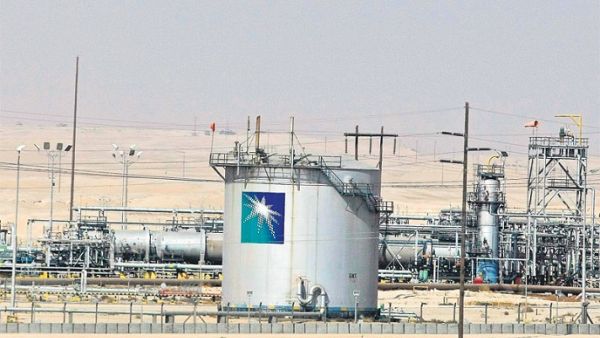Saudi Aramco and petrochemical producer Saudi Basic Industries Corp. (SABIC) have signed a preliminary deal to build a $20 billion complex to convert crude oil to chemicals.
According to Reuters, the project would be the largest crude-to-chemicals facility in the world and the first in the kingdom.
Related stories:
- Saudi Aramco Licenses Solar Array Cleaning Technology To Nomadd
- Saudi Aramco To Focus On Low-Emission Technologies
Private investment has slowed in the kingdom over the last few years as low oil prices dipped and government regulation become stricter.
Under the deal, the city’s capital will put more focus and investments into manufacturing industries, including chemicals. The new complex would process about 400,000 barrels per day (bpd) of Arabian light crude oil to make about 9 million tonnes of chemicals and base oils a year, plus 200,000 bpd of diesel for domestic use.
The project aims to create an estimated 30,000 jobs directly and indirectly, adding 1.5 percent to Saudi Arabia’s gross domestic product by 2030, the companies said.
After signing the MoU, Aramco Chief Executive Amin Nasser told reporters a final decision on whether to go ahead with the project would be made by the end of 2019.
Investment costs for the complex, which could start production in 2025, would be shared equally.
“The two companies can pool their expertise and, given the large size of the capex, partnering hedges their risk,” said Michael Arne, head of emerging technologies research at IHS Markit.
Saudi Aramco, the world’s largest oil company, has been developing its downstream business as the government prepares to sell up to 5 percent of its shares next year in an initial public offering (IPO).
SABIC CEO Yousef al-Benyan said the project was the first time that Saudi Arabia’s two biggest companies were cooperating on a joint industrial project using a new technology.
Related stories:
- Saudi Aramco And Partners To Build Maritime Complex In Saudi Arabia
- Sabic Buys Out Shell's Share In Petrochem Joint Venture
The CEOs of both firms said they were considering locating the complex at the Red Sea port city and industrial center of Yanbu. But Nasser said there were also other options, with factors such as proximity to markets guiding a decision.
The deal is the latest in the Saudi Arabia government’s efforts to diversify the economy beyond exporting crude.
Last month, the Kingdom’s Crown Prince Mohammed Bin Salman announced the $500 billion mega-city project NEOM. The initiative is part of the country’s Vision 2030, which involves a 15-year plan of policy changes that aim to keep the country prosperous without oil.








